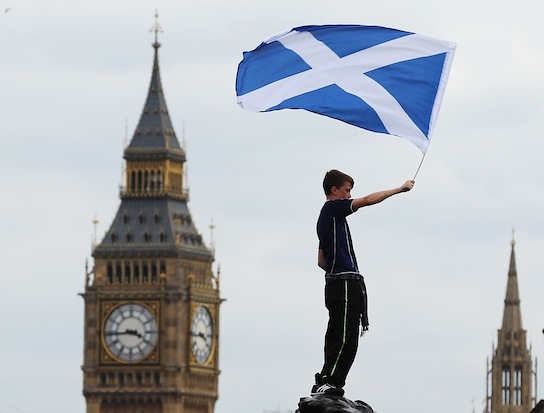It’s a constant theme of this column that today’s young need to stop whingeing about their prospects and get on with making their own future. But a quick north-of-the-border tour as official campaigning kicks off for the Scottish referendum persuades me that the pessimism of the generation about to enter the world of work is for once well justified — and may play a key role in averting the potential economic disaster of independence.
When SNP leader Alex Salmond chose to give 16- and 17-year-olds a say in September’s poll, he must have presumed that teenage Scots — if they could be bothered to vote at all — would be swayed by the romantic nationalism and anti-English fire of the Yes campaign. Not so, it turns out. A survey last year (an update will be published shortly) by Edinburgh University academics of more than a thousand 14- to 17-year-old school pupils found 60 per cent on the No side to 21 per cent Yes and 19 per cent undecided; interest in the issue was high, and there was no obvious pattern of kids parroting parents’ voting intentions. The Better Together campaign has subsequently tracked some 50 school and college debates from Annan to Aboyne that produced emphatic No results, among them two large polls of university students in Glasgow.
Yes campaigners cite a vote their way in a Strathclyde University debate organised by Islamic students — a whiff of tartan jihad perhaps — and outliers such as West Highland College at 65 per cent Yes. But the trend is pretty clear, and so is the rational self-interest behind it, formed more by classroom chatter, I suspect, than by the impact of the propaganda that will intensify in the 100 days remaining before the poll. I met no Scot, young or old, urban or remote, who was anything other than irritated by last week’s exchange of shamelessly sexed-up data claiming to show they will each be £1,000 a year better off independent, or £1,400 worse off.
Being brought up to be deeply suspicious of big business, the young may also be largely deaf to warnings against separation from the likes of Bob Dudley of BP, Ian King of BAE Systems and Sir Ian Cheshire of B&Q (‘I can’t really see the upside… It would put a pause on everything’).









Comments
Join the debate for just £1 a month
Be part of the conversation with other Spectator readers by getting your first three months for £3.
UNLOCK ACCESS Just £1 a monthAlready a subscriber? Log in